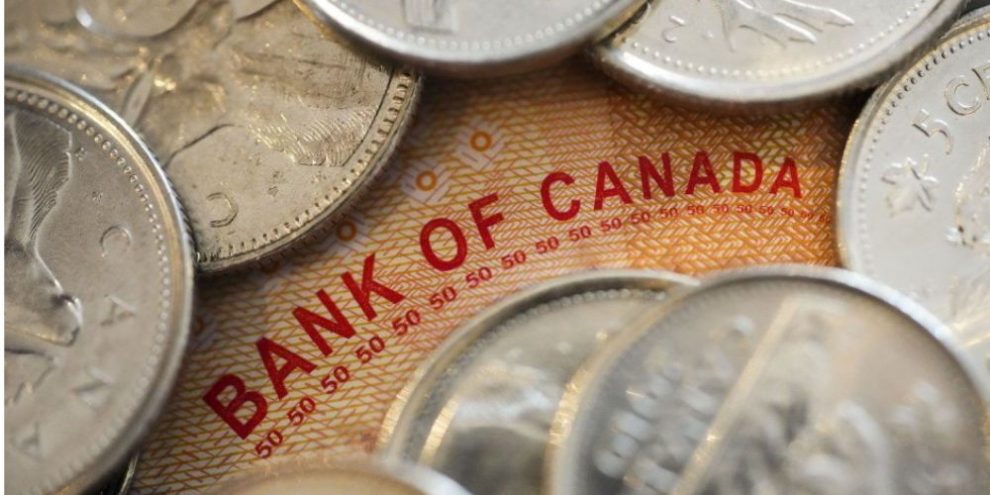
By Nojoud Al Mallees in Ottawa
Canada's inflation rate has been rising for two consecutive months as underlying price pressures remain stubbornly high, a combination that makes the Bank of Canada's next interest rate decision more challenging.
Statistics Canada released its latest inflation reading on Tuesday, which shows the annual rate rose to four per cent in August, up from 3.3 per cent in July.
Forecasters were widely anticipating inflation to come in hotter last month due to higher gasoline prices. But Tuesday's report was even more discouraging than many expected.
"What is the most concerning is that (inflation) accelerated more than (expected) and that we also saw some core measures of inflation that the Bank of Canada track, accelerate as well," said Andrew Grantham, CIBC's executive director of economics.
Core measures of inflation strip out volatility in prices and play a significant role in how the Bank of Canada judges inflationary pressures.
With this latest uptick in price growth, Grantham said inflation during the third quarter is now on track to come in higher than the Bank of Canada forecasted in July.
Bank of Canada deputy governor Sharon Kozicki reacted to the latest inflation numbers in a speech at the University of Regina on Tuesday. She said swings in the inflation rate are to be expected.
"One of the big drivers in inflation this month was coming from energy and gasoline costs," Kozicki said during a question-and-answer period after her speech.
"That's one of those pieces that can be pretty volatile."
Instead of focusing too heavily on swings in the headline rate that can be driven by categories with erratic prices, Kozicki said the central bank is keeping an eye on core measures. Those numbers, however, haven't made much progress recently, she noted.
The central bank is slated to make its next interest rate decision on Oct. 25 — a decision economists say just got tougher.
"This is a very difficult decision," said Grantham.
Earlier this month, the Bank of Canada decided to hold its key interest rate steady at five per centearlier this month as the economy slows.
Recent data showed the economy shrank in the second quarter while the unemployment rate has trended higher.
Statistics Canada released its latest job vacancies report Tuesday as well, which shows vacancies continue to fall.
Now, the central bank will have to weigh that data against higher inflation figures and decide which matters more.
"Our view at the moment is that they're going to place weight on the weakening of the economy," Grantham said, though he noted the next rate decision will be a "close call."
Other Bay Street economists shared similar takes on Tuesday.
"We expect further signs of slowing will help the Bank to continue to stand on the sidelines, as outlined in our recent forecast. However, today's inflation report has raised the odds they may need to make another move," said TD managing director and senior economist Leslie Preston in a client note.
The Bank of Canada will have more data to consider before its next rate decision, including an inflation reading for September. But Grantham said that figure likely won't be much different from August, given the recent rise in oil prices.
A slight silver lining to Tuesday's report is that grocery prices are rising more slowly, with prices up 6.9 per cent from a year ago compared with a reading of 8.5 per cent last month.
Meanwhile, grocery prices fell by 0.4 per cent between July and August.
"I do think that the rate of inflation for groceries will continue to decelerate," Grantham said.
"(But) if you're the average Canadian, average household, you don't want prices to just stop rising, you want them to kind of come down a little bit from these very high levels. I'm not sure that's going to happen any time soon, unfortunately."
Higher grocery prices have been a major pain point for Canadian families, particularly those with lower incomes who spend a larger share of their earnings on food.
Industry Minister François-Philippe Champagne met with top executives of Canada’s major grocery chains on Monday to discuss measures to stabilize prices.
After the meeting, Champagne said the grocers agreed to work with the federal government, but few details were provided on how prices could be stabilized.
This report by The Canadian Press was first published Sept. 19, 2023.
Banner image via The Canadian Press





